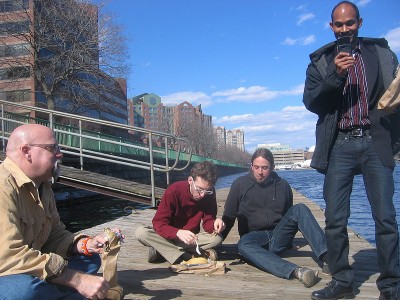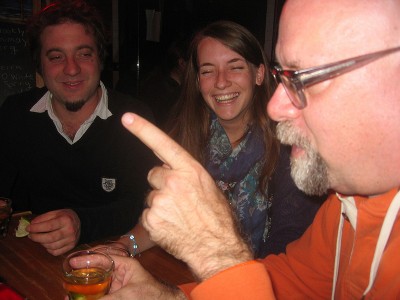Many incredible volunteers are still on their way to Boston, sacrificing their Passover/Easter holiday weekend, for our April 6-10’s Doc Sprint. Officially starting Friday at OLPC HQ in Cambridge, Massachusetts!
The 5-day task is Huge. So was the marathon preparation. Our goal here, and now: to engage thousands more active users worldwide, of all ages, to understand the POWER of the XO laptop and its Sugar learning system — 4.5 full years after this global XO kids learning movement truly hit the road.
It’s time. And our community tools are all rapidly coming together to make this all happen — so our community’s priorities boil down to documenting:
- XO Hardware
- Core OS, Sugar & Gnome
- Sugar Activities
- Learning Tactics, School Server, Volunteer Community
Our driving goal? Refreshing our touchstone manual that first appeared way back in early autumn 2008. No, NOT another deployment guide or deployment gossip. But something succinct+snappy, dare we say approachable+fun? With dramatic changes in store…
In the end? The most cool Sugar Activities on every continent will make our best Chapters visible, just 1 click away, for Years To Come.
The amazing reality? Key documents (and videos) are already being slapped into shape, and interlinked in far more meaningful ways, and far beyond core manuals. Consider Walter Bender’s newly concise summaries of his 25 favorite Activities, real world server-in-field tricks emerging into the light — with new kinds of project-sparking videos imminent from implementation experts like Kenya’s Ntugi Group.
Don’t forget. You too CAN contribute, even from a distance, even just joining our team mailing list library@lists.laptop.org!
Thanks to all running this race for the ages! Especially Christoph Derndorfer, Caryl Bigenho, Seth Woodworth and Laura de Reynal for their most priceless prep 🙂


